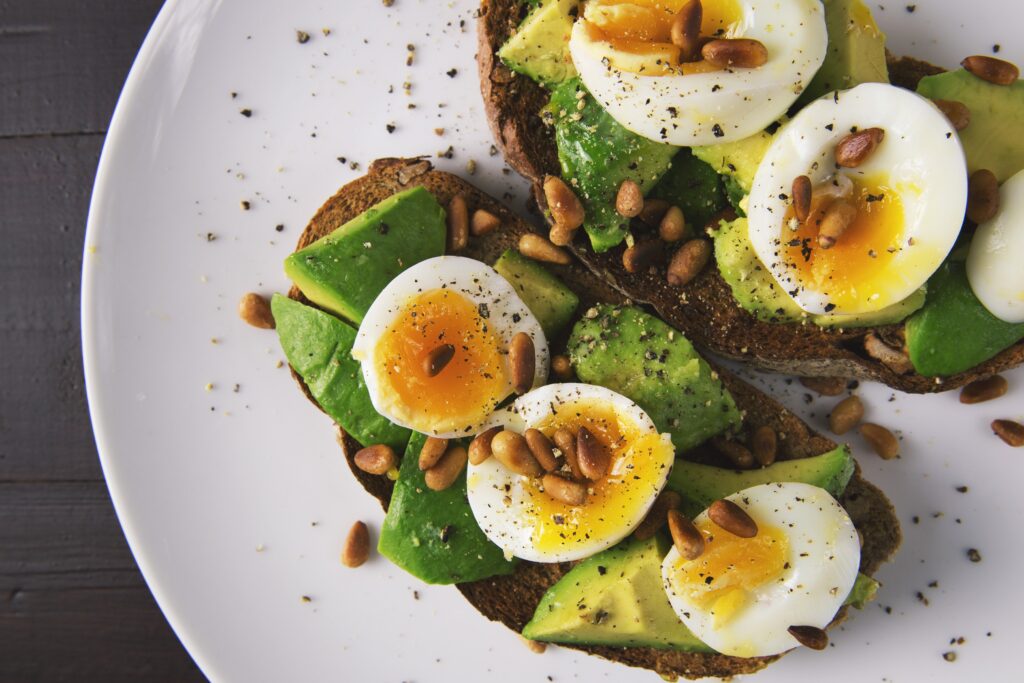WHAT IS INFLAMMATION?
In its simplest terms, inflammation is the body’s response to injury or infection. It is a natural process that helps the body heal and protect itself from further harm. However, when inflammation occurs unnecessarily or becomes chronic, it can lead to a host of problems. Anti-Inflammatory foods and supplements can help alleviate the problem though.
There are two main types of inflammation: acute and chronic. Acute inflammation is the short-lived kind that happens as part of the body’s natural healing process. It typically lasts for a few days or weeks and goes away once the injury or infection has been resolved. Chronic inflammation, on the other hand, is long-term and can last for months or even years. It often occurs in response to things like allergies, autoimmune diseases, and exposure to toxins.
FOODS THAT HELP REDUCE INFLAMMATION
There is a wide variety of foods that can help reduce inflammation in the body. 20 of the best anti-inflammatory foods include:
• Omega-3 fatty acids: These are found in fish like salmon, mackerel, and sardines, as well as in flaxseeds, chia seeds, and walnuts. Omega-3 fatty acids help to reduce inflammation by reducing the production of inflammatory chemicals like prostaglandins and leukotrienes.
• Antioxidant-rich foods: These include fruits and vegetables like blueberries, strawberries, raspberries, kale, spinach, and broccoli. Antioxidants help to neutralize harmful inflammation-causing free radicals.

• Spices: Certain spices like turmeric, ginger, cloves, and cinnamon have strong anti-inflammatory properties. They work by inhibiting the production of inflammatory compounds like cytokines and prostaglandins.
• Probiotic-rich foods: These are foods that contain live, beneficial bacteria, such as yogurt, sauerkraut, kimchi, and miso soup. Probiotics help to reduce inflammation by promoting a healthy balance of gut bacteria.
• Green tea: This popular beverage is rich in a type of antioxidants called catechins, which have been shown to reduce inflammation.
• Olive oil: This healthy fat contains a compound called oleocanthal, which has anti-inflammatory properties similar to ibuprofen.
• Tomatoes: Tomatoes are rich in a substance called lycopene, which is an antioxidant that has been shown to reduce inflammation.
• Fatty fish: Fatty fish like salmon, tuna, and mackerel are rich in omega-3 fatty acids, which have anti-inflammatory properties.
• Avocados: Avocados are a good source of monounsaturated fats, which have been shown to reduce inflammation.
• Walnuts: These nuts contain a variety of nutrients that have anti-inflammatory effects, including omega-3 fatty acids, antioxidants, and plant compounds.
• Dark chocolate: This sweet treat contains flavonoids, which are antioxidant compounds that can help reduce inflammation.
• Red grapes: Red grapes are rich in a type of antioxidants called anthocyanins, which have been shown to reduce inflammation.
• Broccoli: This nutrient-rich vegetable contains a variety of anti-inflammatory nutrients, including vitamins C and E, carotenoids, and flavonoids.

• Sweet potatoes: Sweet potatoes are a good source of beta-carotene, an antioxidant that has anti-inflammatory properties.
• Spinach: Spinach is rich in a variety of nutrients that have anti-inflammatory effects, including vitamins C and E, carotenoids, and flavonoids.
• Garlic: Garlic contains a compound called allicin, which has been shown to reduce inflammation.
• Almonds: These nuts are a good source of vitamin E, an antioxidant that has anti-inflammatory effects.
• Citrus fruits: Citrus fruits like oranges, lemons, and grapefruit are rich in vitamin C, an antioxidant that can help reduce inflammation.
• Strawberries: These berries are a good source of antioxidants, including vitamin C and flavonoids.
• Cherries: Cherries are a good source of antioxidants, including anthocyanins and flavonoids.
While there is no one-size-fits-all approach to reducing inflammation, incorporating some or all of these anti-inflammatory foods into your diet may help to reduce the inflammatory response in your body. Making sure to include these foods in your diet is a great way to help reduce inflammation in the body.
SUPPLEMENTS THAT REDUCE INFLAMMATION
In addition to eating a healthy diet, there are a number of supplements that can help to reduce inflammation in the body. Anti-Inflammatory foods and supplements go hand in hand in alleviating the problem. Some of the most effective anti-inflammatory supplements include:
• Omega-3 fatty acids: These healthy fats are found in fish oil supplements and can help to reduce inflammation by reducing the production of inflammatory compounds like prostaglandins and leukotrienes.
• Curcumin: This compound is found in the spice turmeric and has been shown to reduce inflammation by inhibiting the production of inflammatory cytokines.
• Ginger: This spice contains a compound called gingerol, which has been shown to reduce inflammation by inhibiting the production of inflammatory compounds like cytokines and prostaglandins.
• Boswellia: This herb contains a compound called boswellic acid, which has been shown to reduce inflammation by inhibiting the production of inflammatory compounds like leukotrienes.
• Green tea: This popular beverage is rich in a type of antioxidants called catechins, which have been shown to reduce inflammation.
• Tart cherry juice: This juice is rich in a type of antioxidants called anthocyanins, which have been shown to reduce inflammation.
Taking these supplements can help to reduce the inflammatory response in your body and may help to alleviate some of the symptoms associated with inflammatory conditions like arthritis, asthma, and Crohn’s disease. Anti-Inflammatory foods and supplements are the easy way to help remedy the problem naturally. Talk to your doctor about whether or not these supplements are right for you.
CONCLUSION
Inflammation is anormal and necessary process that helps the body to heal and protect itself from infection and injury. However, when the inflammatory response is chronic, it can lead to a number of health problems. Anti-Inflammatory foods and supplements can help the problem to a large extent. Eating a healthy diet and including anti-inflammatory foods in your diet is a great way to help reduce inflammation in the body. In addition, there are a number of supplements that can help to reduce inflammation. Talk to your doctor about whether or not these supplements are right for you.
Ready to take your passion for nutrition to the next level and get certified as a professional? Check our Professional Nutrition Certificates that you can take Online from the comfort of your home HERE

